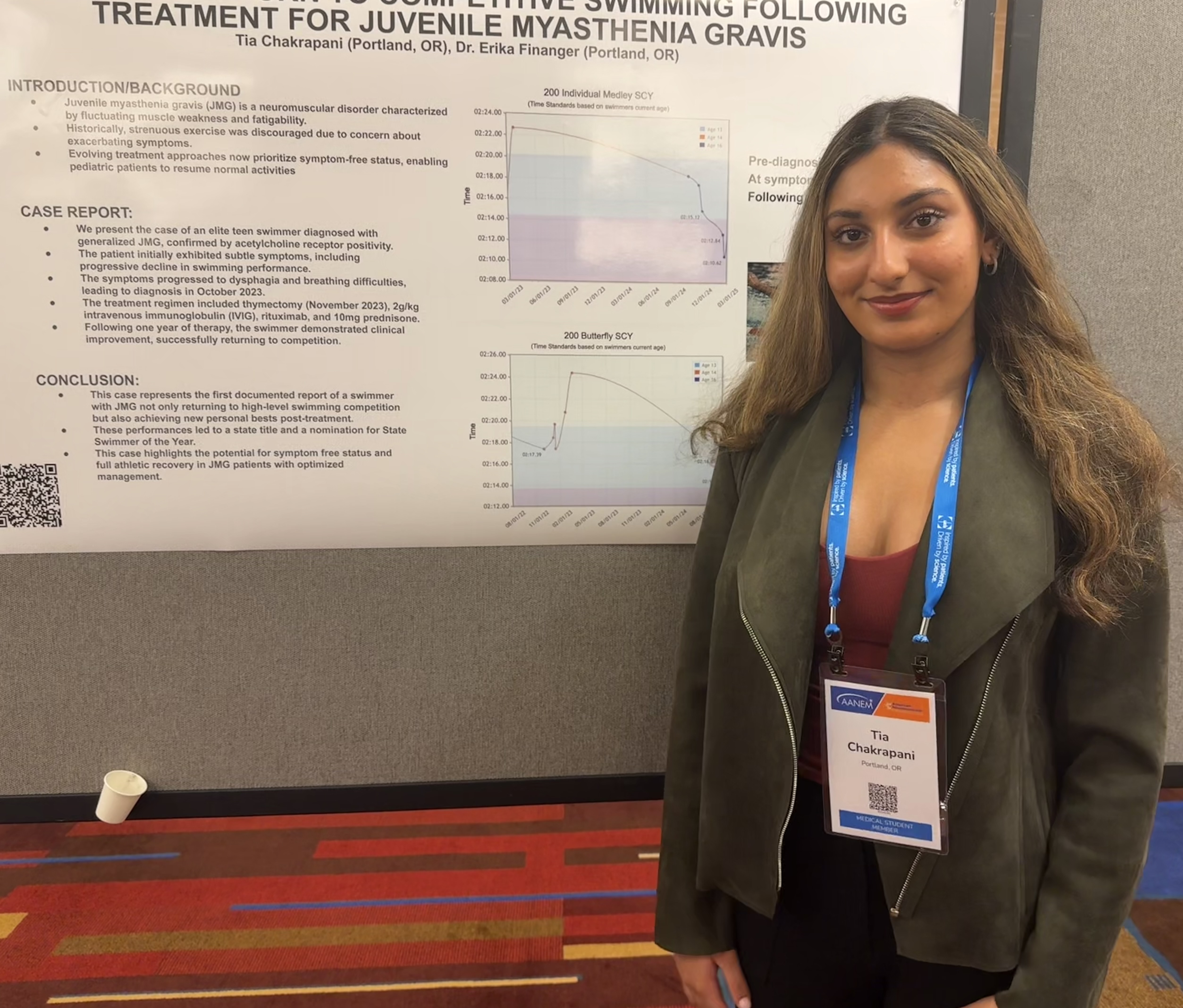
Shawna Barnes has never been someone who indulges in defeatist thinking: not during the nearly four years she served as an Army medic, not in her roles as a parent or a wife, not throughout her arduous diagnosis journey, and certainly not when it comes to her ongoing experiences with Myasthenia Gravis (MG).
Her MG symptoms began in 2010, seven months into her first deployment to an open burn pit compound in Iraq. Shawna medically retired from service later in 2011 at the age of 26, but she continued to experience new symptoms including bilateral leg weakness and bulbar dysphagia. It took five years before she was finally formally diagnosed with MG – after an optometrist identified her ptosis.
“Because I have post-traumatic stress disorder from military sexual trauma, a lot of my earlier symptoms got dismissed as anxiety- or PTSD-related,” she said. “My ptosis was really the first visual symptom where my doctors started to consider that maybe it wasn’t all in my head.”

As a disabled veteran, Shawna receives her care through Veterans Affairs (VA). While she’s had to fight to get her MG recognized as service-connected, and to find a quality care team after moving from Maine to Wisconsin, she’s grateful that those fights are now over.
“It can be hard because our medical professionals are overworked and are so confined by the insurance companies,” she said. “But that’s one blessing about the VA: I don’t have to fight for my treatment. I get IVIg infusions about every three weeks from the VA and, now, I don’t have to fight with insurance the way a lot of my friends do.”
Soon after her official diagnosis, Shawna realized that there aren’t many resources available for people with MG. She managed to find the Myasthenia Gravis Foundation of America, as well as some online support groups, but ultimately chose to publicize her own lived experiences in order to offer more visibility, awareness, and education about MG.
For over a year and a half, she’s written a weekly column for MG News, while also maintaining a consistent Instagram presence. She speaks at conferences about MG and accessibility in the digital realm, and some of her arts accessibility work will be published as a course curriculum by New York’s Department of Education.
“My voice is different than what’s already out there,” Shawna said. “I don’t subscribe to the idea that having MG is the end of my world. There are definitely bad days – and we’re allowed to have bad days and pity parties – but I don’t stay there because I choose to live, not just survive.”
Shawna and her husband, Justin, are utilizing this exact mentality in To Hellth and Back, their newest professional venture that will be launching later this year. With their combined experiences as a chronic illness patient, traumatic brain injury survivor, nutrition coach, and personal trainer, the duo is well-equipped to provide physical fitness support to people in these communities.

“Just because you can’t walk a mile or you can’t do physical therapy the way someone without MG can doesn’t mean that you can’t do anything at all,” Shawna said. “I’m able to weight train – but only in five minute intervals. I’m up to 1,700 steps per day after starting out at only 1,000. We understand that people need to start where they’re at, and that these small increments are what helps improve health without causing setbacks.”
As if all of that wasn’t enough, Shawna also has multiple web design clients that she works with remotely – and is proud of the work and life balance she’s carved out for herself at the age of thirty-nine.
“I’m a dreamer and a helper, but I’ve learned that I can’t do any of that if I push myself too far, so I have my boundaries set to allow for growth: work days, infusion days, recovery days, family days,” she said.
"I also know that you can’t see what isn’t visible on the outside, so I work to be more compassionate than ever, while still maintaining those boundaries. In a way, MG has made me both softer and harder.”

.png)
